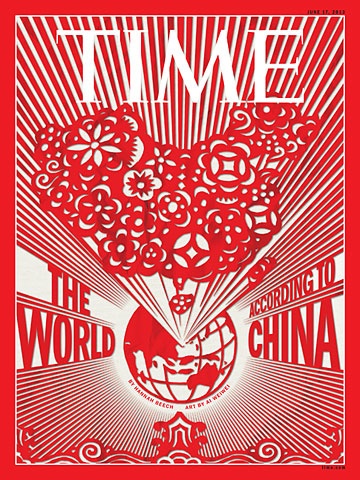
(3 of 7)
Yet China's ascendancy on the world stage can't mask some uncomfortable realities. Despite pouring billions of dollars into a soft-power push that encompasses everything from building roads and hospitals in the developing world to sponsoring Mandarin lessons in the West, China's international image languishes. A 21-country poll by the BBC World Service released last month found that negative attitudes toward China had increased by 8 points to 39% over the past year. Even in parts of Africa, Latin America and Asia that depend on Beijing's aid and investment, China Inc.'s reputation is that of a voracious extractor of natural resources. The country's military expansion and assertive maritime claims in the South and East China Seas are spooking its neighbors, not to mention the alleged state-sponsored cyberattacks and pilfering of U.S. industrial and military secrets that Obama is sure to raise with Xi when they meet at Sunnylands, a private estate in Southern California. Among Beijing's few real allies--and even that term can be applied only loosely--are North Korea, Russia and Pakistan.
Far from taking a leading role in international affairs commensurate with its economic weight, China remains a foreign policy laggard, often shying away when it could use its influence to promote regional stability and howling when it comes to territorial flash points with smaller countries like Vietnam or the Philippines. "China says it wants respect from the rest of the world," says Zheng Yongnian, director of the East Asian Institute at the National University of Singapore. "But it does very little to earn real respect." Indeed, Chinese from both the government and the business community are often genuinely surprised when they discover that their lavish foreign aid and trading partnerships are undercut in the world's mind by escalating territorial disputes and the martial drumbeat emanating from Beijing.
China's assertiveness abroad also belies growing insecurities at home. While the inexorable rise of China may be a given in the West, Chinese people are not so sure of their future supremacy. The world's greatest economic expansion cannot continue forever. China must wean itself off a dependence on low-tech exports, but transitioning to a knowledge- and service-based economy will require massive investment and a revamping of the nation's education system to promote creativity. Meanwhile, income inequality is widening, and corruption chokes the Communist Party. "Back in 2010, when China escaped the worldwide recession, there was a sense of superiority about the Chinese economic model," says Dali Yang, a political-science professor at the University of Chicago. "But that euphoria is gone, and now we are entering an era of some doubt and anxiety in China."
